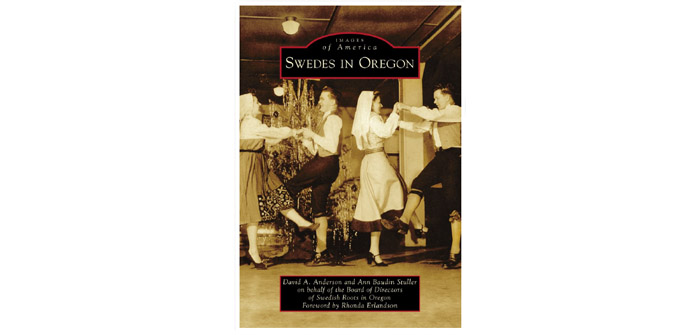(Images of America: Swedes in Oregon, published by Arcadia Publishing and The History Press)
Ever since the first Swedish-born immigrants to Oregon began settling in the 1850s, Swedes have had a big impact on its development. Among the first immigrants was shoemaker Carl M. Wiberg, who arrived in the summer of 1852 and settled in Portland. By 1930, roughly 45 percent of all Swedish immigrants were living in the Portland metro area. Other areas of Swedish settlement included Astoria, Coos Bay, Tillamook, southwestern Oregon and Morrow County. At first, the Swedish language was the unifying force among the immigrants. Today, it is the celebration and sharing of Swedish traditions and culture. There are many reasons why Swedes were attracted to the United States, including religious freedom, better economic conditions, and, for young men, escaping compulsory military service. Many immigrant Swedes did not come directly to Oregon but were attracted to the state and its employment opportunities after the completion of the transcontinental railroad.
About the Author
Swedish Roots in Oregon (SRIO) is a small nonprofit organization devoted to researching and preserving the history of the Swedish immigrants in Oregon. SRIO has published four books and numerous booklets and has created a traveling exhibit featuring Swedish American life throughout the state. The collection of photographs used in Swedes in Oregon comes from a variety of sources, including personal collections. Swedish Roots in Oregon is a member of the Swedish Council of America. David A. Anderson was a Peace Corps volunteer in the late 1970s and authored Images of America: Mount St. Helens. Ann Baudin Stuller is a former modern language instructor. Both are avid genealogists and photographers.
Images of America: Swedes in Oregon, by David A. Anderson and Ann Baudin Stuller on behalf of the Board of Directors of Swedish Roots in Oregon; foreword by Rhonda Erlandson, is published by Arcadia Publishing and The History Press and available now.
arcadiapublishing.com • historypress.net

